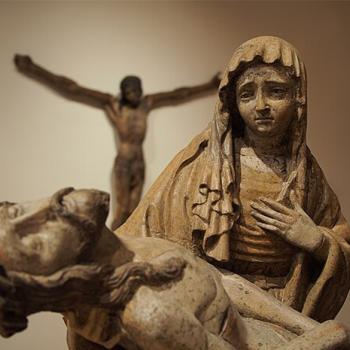 I want to briefly follow up on the “(Mis)Understanding Honor, Shame, or Face” series (Part One, Two, Three), giving at least some nod in the direction of application. The implications are so vast, one could not suppose to tease them all out over a lifetime of writing. In broad strokes, what are some spheres of daily and church life that are affected by honor and shame?
I want to briefly follow up on the “(Mis)Understanding Honor, Shame, or Face” series (Part One, Two, Three), giving at least some nod in the direction of application. The implications are so vast, one could not suppose to tease them all out over a lifetime of writing. In broad strokes, what are some spheres of daily and church life that are affected by honor and shame?
Everything.
All people have a sense of identity and a system of values that direct everything they do. Everyone pursues honor and wants to avoid shame, . . . at least in the terms they use to define honor and shame. That last qualification is loaded with potential. How do people in the West, for example, express this? Facebook and Twitter are the most obvious examples of people face grabbing, “Notice me. Notice me.” People were the caps or shirts of their favorite sports team, claiming, “We won!!” when in fact they’re not actually on the team. People commonly talk about “people pleasing” and “pride”––once again, honor, shame, and face language.
What about China and other honor-shame cultures?
Ecclesiology –– Honor/shame determines group identity, loyalty, and the sense of right and wrong. I’ve touched on this in my article on authority in a collectivistic church, wher I trace some implications for Chinese ecclesiology.
Evangelism –– The appeal to law and guilt, which is standard in western gospel presentations, will make less sense in an honor-shame culture. This doesn’t deny its truth value, but it is simply not the best starting point. I’ve heard Westerners bristle at this, but Paul himself appealed to diverse metaphors to explain the gospel and salvation. We must reframe the problem of sin and judgment in terms of shame (e.g. “falling short of the glory of God,” “not put to shame,” . . . . People need to perceive that conversion is an exchange of groups, of fundamental loyalties, of honor-shame standards. People must seriously reckon with the question of face. It cannot be written off as a major consideration that hinders or spurs a person to follow Christ.
This is a key principle:
To lose face in one group is to gain face in another.
Salvation — I’ve unpacked this extensively in my dissertation, particularly focusing on Christ’s atonement and justification. You can read the prospectus and the full bibliographical citation is under my “books for thought” section.
Ethics and Perseverance –– People must see the shame they will endure when they are spurned by those in their present groups (e.g. family, nations, etc.). However, we are to keep in mind the glory that is being prepared for us (cf. Romans 8; 2 Cor 4).
Honor and shame regulate the Church Community’s ethical life and ministry, know that Christ’s reputation is at stake. Kwame Anthony Appiah’s The Honor Code: How Moral Revolutions Happen is an intriguing look at how honor-shame considerations have led to major historical upheavals within moral thinking, such as the eradication of dueling, foot-binding, and slavery.
Ethnicity –– This is a live issue for cultures around the world. I suspect that many people in the West, especially America, overlook or minimize the significance of this issue first due to the unique collage of cultures found in the West, second because of its awful history of racism, which many people just want to move past. I suspect given that history, people don’t want to “find ethnic issues under every rock.” However, honor-shame finds its most fertile soil within this sphere. Certainly, this topic should be a more pronounced factor within people’s evangelistic and mission methods.
Missions — Naturally, there are diverse implications for missions, besides what has been mentioned (i.e. ecclesiology, evangelism, etc.). One could also think of issues like missionary training and adaptation. Also, it affects how one counsels individuals, couples, and families.
Interpretation and Theology — The fact that honor-shame is one of the most prominent features of most of the world’s cultures throughout history should tip us. The Bible is a book for all peoples. Certainly we would not expect it only to appeal to individualistic, conscience-stricken legalists like so many westerners. Also, the theme of God’s glory is well recognized; however, broadening our vocabulary to include honor-shame (with its related concepts) may help us to gain new insights from the text. Most likely, we may find that we often have been majoring on minor themes and missing the the major point altogether. Again, check out the dissertation for more on all this.
Photo Credit: CC 2.0/pixabay

















